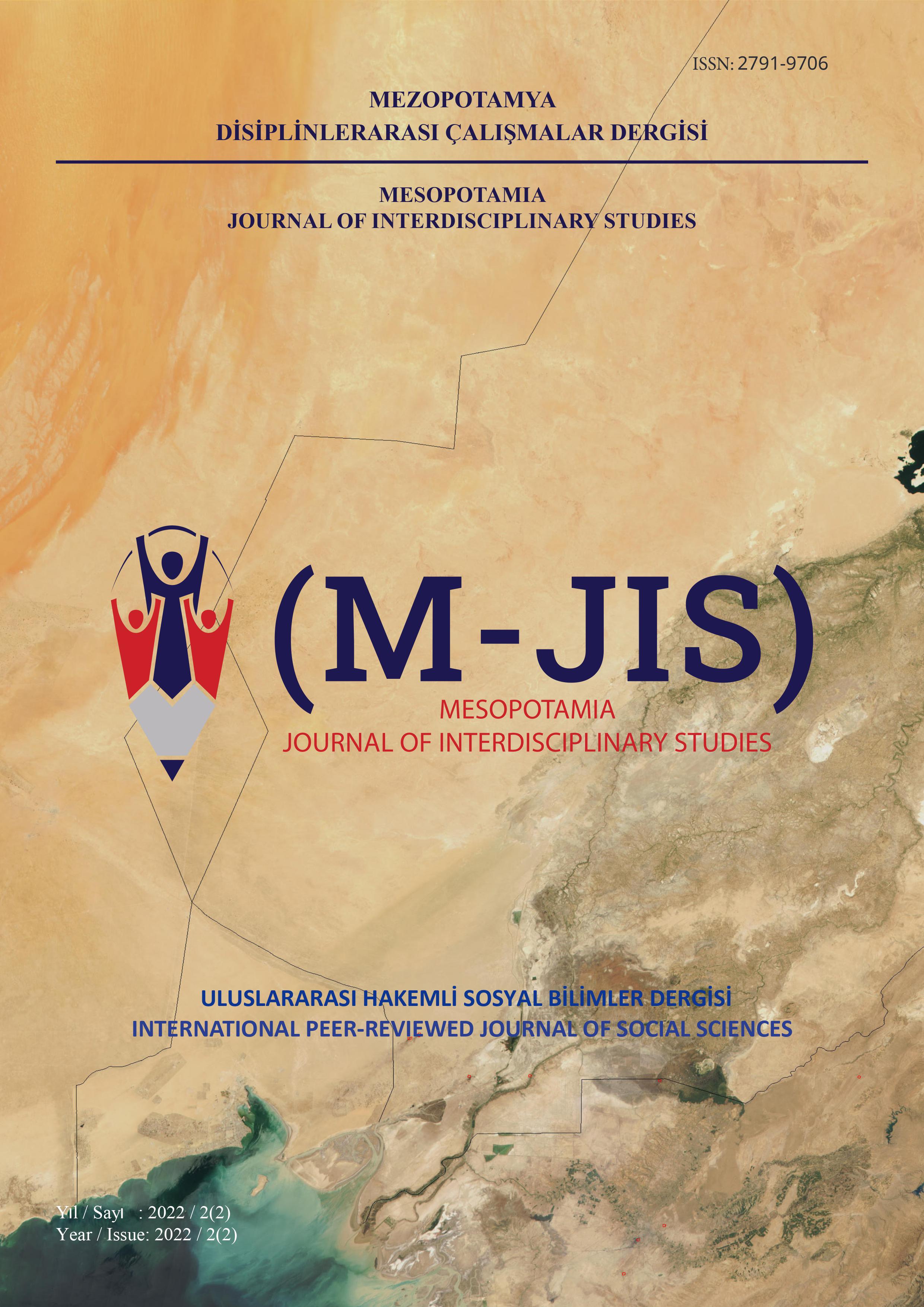Author :
Abstract
“Sosyal sermaye” kavramı 20 yüzyılın son çeyreğinde beşeri bilimler literatüründe yoğunluklu olarak tartışılmaya başlandı. Son iki yüzyılda Batılı ülkelerin gelişmişliğinin asıl motivasyon kaynağının liberal bireyselicilik olduğu tezi kabul gördü. İnsanlar modernleştikçe ortadan kalkacağına inanılan, güven, sadakat gibi geleneksel değerlerin ürünü olan dayanışma temelli ilişki biçimleri, zamanla modern rasyonel ve çıkar temelli bireyselcilikle yer değiştirecekti. Sosyal sermaye kavramı, toplumsal refahın ve kalkınmanın liberal bireyselcilikle eş tutulduğu bir çağda, ihmal edilen geleneksel değerlerle bir uzlaşı niteliğinde öne çıkmaktaydı. Sosyal sermaye tartışmalarıyla birlikte, yalnızlığın insan doğasına çok uygun olmadığı, güven ve dayanışmanın önemli olduğu, insanların bir birlerine destek olmaları durumunda başarının artacağı fikri egemen olmaya başladı. Daha da önemlisi bu güven ve dayanışmanın bir “sermaye” olduğu ve en az diğer sermaye türleri kadar değerli olduğu fikri kabul gördü. Sosyal sermaye kavramı gündeme geldiği andan itibaren çağdaş toplumsal sorunların neredeyse tümünün çözümünün bir anahtarı olarak kabul gördü. Sağlık, eğitim, kalkınma, demokratikleşme vb. problemlerle ilişkili olarak görüldüğü için de interdisipliner bir boyut taşımaktaydı. Bu çalışma, sosyal sermaye kavramını sivil toplum, kalkınma ve demokratikleşme perspektifinden ele almaktadır. Sosyal sermaye sivil toplum ve demokrasi ile ilişkisi sosyal sermayenin önemli kuramcılarından olan Robert Putnam’ın yaklaşımı çerçevesinde değerlendirilecektir.
Keywords
Abstract
The concept of "social capital" began to be discussed intensively in the humanities literature in the last quarter of the 20th century. In the last two centuries, the thesis that liberal individualism is the main motivation for the development of Western countries has been accepted. Solidarity-based relationships, which were the product of traditional values such as trust and loyalty, believed to disappear as people modernized, would eventually be replaced by modern rational and interest-based individualism. The concept of social capital stood out as a compromise with neglected traditional values in an age when social welfare and development were equated with liberal individualism. Along with the social capital discussions, the idea that loneliness is not very suitable for human nature, trust and solidarity is important, and that success will increase if people support each other has started to dominate. More importantly, the idea that this trust and solidarity is a “capital” and is at least as valuable as other types of capital has been accepted. From the moment the concept of social capital came to the fore, it was accepted as a key to the solution of almost all contemporary social problems. Health, education, development, democratization etc. It had an interdisciplinary dimension as it was seen as related to problems. This study deals with the concept of social capital from the perspective of civil society, development and democratization. The relationship between social capital, civil society and democracy will be evaluated within the framework of Robert Putnam's approach, one of the important theorists of social capital.
Keywords
- Aydemir, M. Ali. (2011). Sosyal sermaye- topluluk duygusu ve sosyal sermaye araştırması. Konya: Çizgi Kitabevi,
- Belge, M. (2003). Sivil toplum nedir. İstanbul: İstanbul Bilgi Üniversitesi Yayınları.
- Bourdieu, P. & Passeron, J.C. (2014) Vârisler öğrenciler ve kültür. Ankara: Heretik Yayınları
- Erdoğan E. (2011). Sosyal sermaye, güven ve Türk gençliği. ss. 3-39. http://www.urbanhobbit.net/PDF/Sosyal%20Sermaye_emre%20 erdogan.pdf (28.03.2022)
- Eroğlu Y. (2021). Yeni gençlik kültürü ve sosyal sermaye: Hakkâri ili özelinde bir alan araştırması. Uluslararası Toplum Araştırmaları Dergisi. 17(38). DOI: 10.26466/opus.845838
- Erselcan, F. (2009) Ortak bir çalışma alanı olarak sosyal sermaye. C.Ü. Sosyal Bilimler Dergisi, 35(2), 248-256
- Fichter J. (2001). Sosyoloji nedir. (N.Çelebi, Çev.). Ankara: Atilla Kitabevi.
- Field,J. (2008). Sosyal sermaye. (B. Bilgen ve B.Şen, Çev.). İstanbul: Bilgi Üniversitesi Yayınları.
- Fine N. (2011). Sosyal sermaye sosyal bilime karşı/bin yılın eşiğinde ekonomi politik ve sosyal bilimler. (A. Kars, Çev.). İstanbul: Yordam Kitap.
- Fukuyama, F. (2009). Büyük çözülme – insan doğası ve toplumsal düzenin yeniden oluşturulması (H. Kaya, Çev.). İstanbul: Profil Yayınları.
- Giddens, A. (2012). Sosyoloji. İstanbul: Kırmızı Yayınları
- Grootaert, C. (2003). Measuring Social Capital,: An Integrated Questionnaire, Herndon, VA, World Bank.
- Lin, N. (2001). Social capital: a theory of social structure and action. Cambridge: Cambridge University Press.
- Mardin, Ş.(2008). Türkiye’de toplum ve siyaset. İstanbul: İletişim Yayınları.
- Putnam, R. L. & Nanetti, R.Y. (1993). Making democracy work: Civic traditions in modern Italy. Princeton: Princeton University Press.
- Putnam, R.D. (2000). Bowling alone: the collapse and revival of American community. New York: Simon and Schuster.
- Swartz, D. (2011). Kültür ve iktidar Pierre Bourdieu'nun sosyolojisi (E. Gen, Çev.).İstanbul: İletişim Yayınları.
- Şan, M.K. (2007). Bilgi toplumuna geçişte sosyal sermayenin taşıdığı önem ve Türkiye gerçeği. Bilgi Ekonomisi ve Yönetim Dergisi, 2(1), 70- 104
- Şan, M.K. ve Şimşek R. (2011). Sosyal sermaye kavramının tarihsel- sosyolojik arkaplanı. Akademik İncelemeler Dergisi, 6(1),.88-110.
- Tocguaville, A. (1962). Amerika’da demokrasi. (T. Timur, Çev.). İstanbul: Türk Siyasi İlimler Derneği
- Touraine, A. (2018). Modernliğin eleştirisi. (H. Tufan, Çev.). İstanbul: Yapı Kredi Yayınları.
- Uğuz, D. H. (2010). Kişisel ve kurumsal gelişmeye farklı bir yaklaşım sosyal sermaye. Ankara: Orion Kitabevi.





